Remembering Bude 80 Years On
With the outbreak of the Second World War in 1939, concerns quickly grew about the safety of pupils at the College remaining in Bristol, a port-city likely to be targeted during air raids. Initially, the College Council resolved to stay put, but on 2nd December 1940, during the devastating Bristol Blitz, several bombs struck school grounds, two of them landing within just 30 and 60 feet of the Wiseman’s and Polack’s Houses’ shelters full of children.
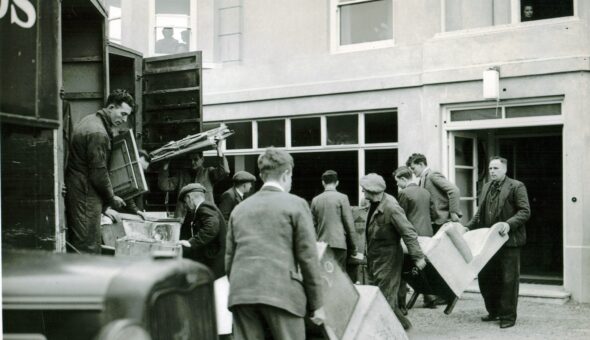
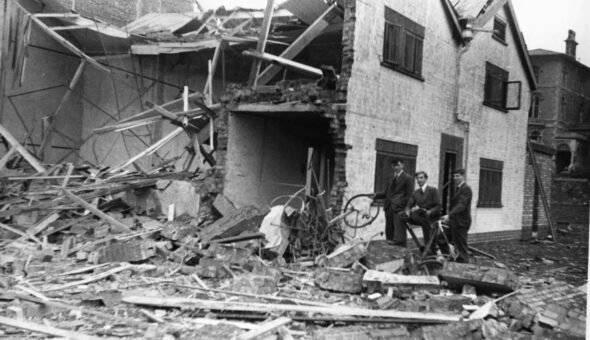
In response the Council made the bold decision to evacuate the College. Through an agreement with the War Office, five small hotels and a café in the coastal town of Bude in North Cornwall, were secured to house the school. In January 1941, 310 boys and 32 teachers made the journey southwest to begin a new chapter.
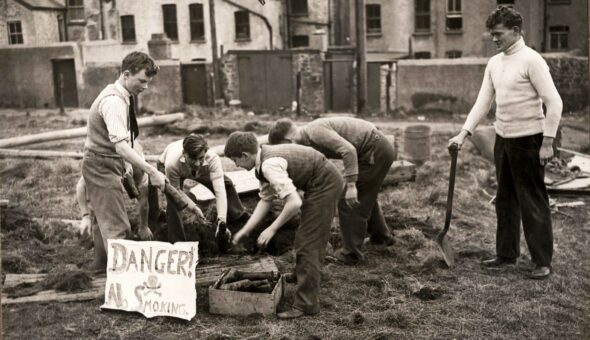
By all accounts, life in Bude was a resounding success. Old Cliftonians who were there recall a safe and happy environment, where the College spirit thrived against the odds. Sporting fixtures with other schools continued, but it was with academics that the College shone most brightly during this period. In 1941, Clifton College secured 16 scholarships to Oxford and Cambridge, in 1942, that number rose to 21, in face of the challenges it remains a triumph in our history.
“Our schooling at Bude was a mixture of improvisation, cooperation, determination, and sheer genius.” – Lord Jenkin of Roding (SH, 1940-1944).
After four years in Bude, pupils and teachers returned to our Clifton campus in March 1945. Whilst away, our buildings were handed over to the United States First Army as their headquarters. The Wilson Tower overlooking the Close was used for intelligence offices and the crow’s nest at the very top received top secret Ultra messages intercepted from German forces and deciphered at Bletchley Park. Classrooms and the Percival Library were full of clerks compiling the plans for the Normandy Landings, the College had become the nerve centre for the US Army. The College’s boarding Houses in the residences nearby became billets for the troops and our nearby Beggar’s Bush Sports Ground became an airstrip. You can read more about this era in our history here.
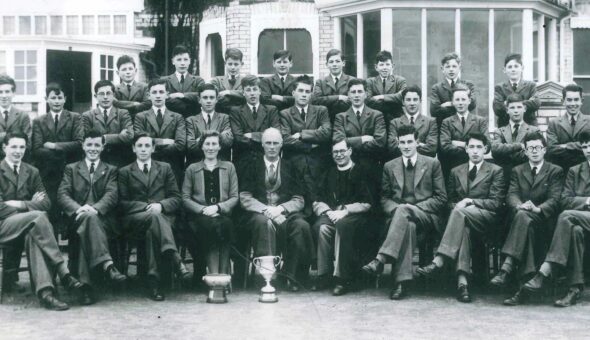
Whilst the US Army were stationed here the Big School building became a central dining hall, this change was kept on, whereas previously all meals were served in boarding Houses. This move reshaped the pupil experience, maintaining that community spirit that served them well in Bude, a feeling that still exists today.
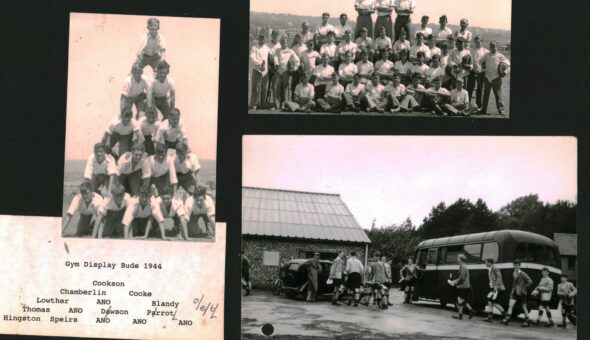
80 years on we remember the resilience and adaptability of those pupils and teachers whose commitment to maintaining education despite significant risk and upheaval continues to inspire us.
